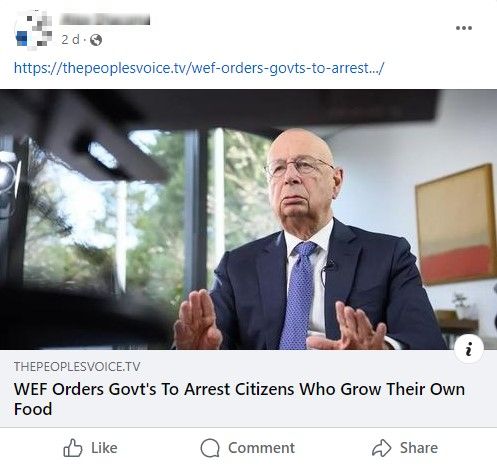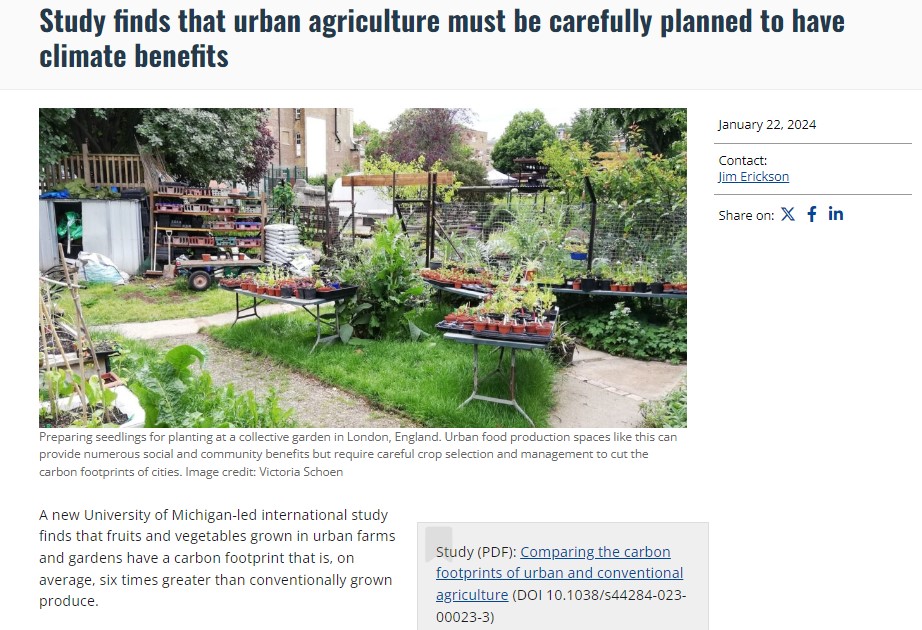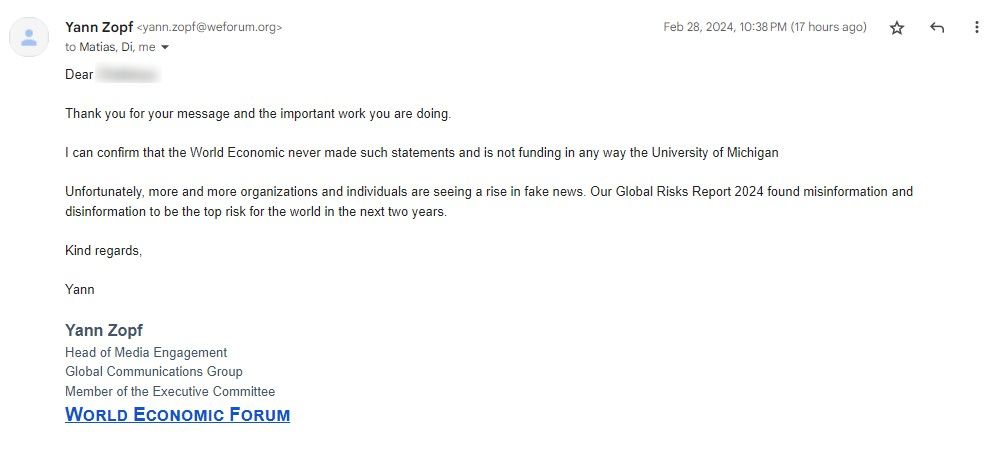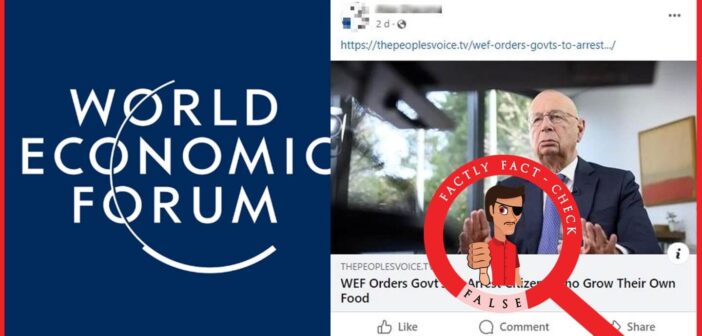A post circulating on social media and blogs suggests that the World Economic Forum (WEF) has endorsed the idea of governments arresting individuals who grow their food. Furthermore, the blog asserts that this proposal originates from research funded by the WEF at the University of Michigan. Through this article let’s fact-check the assertion made in the post.

Claim: The World Economic Forum (WEF) has proposed the criminalization of home cultivation of food.
Fact: While there is a University of Michigan study indicating that fruits and vegetables cultivated in urban farms and gardens typically exhibit a carbon footprint six times larger than conventionally grown produce, there is no evidence of the World Economic Forum endorsing this study or advocating for governments to criminalize the cultivation of personal food. They have categorically refuted the claim. Hence, the claim made in the post is FALSE.
The viral post embeds a news report that alleges the World Economic Forum advocating criminalizing cultivating own food. Further, the report alleges that WEF’s suggestion is based on research conducted by the University of Michigan, funded by the WEF.
University of Michigan research:
There exists an international study led by the University of Michigan comparing the carbon footprints of urban and traditional agriculture. This study indicates that fruits and vegetables cultivated in urban farms and gardens typically exhibit a carbon footprint six times larger than conventionally grown produce.

The project received backing from the UK Economic and Social Research Council, the German Federal Ministry of Education and Research, the French National Research Agency, the U.S. National Science Foundation, Poland’s National Science Centre, and the European Union’s Horizon 202 research and innovation program.
Nevertheless, the research also revealed that certain city-grown crops matched or exceeded conventional agricultural practices in specific scenarios. To illustrate, tomatoes cultivated in the soil of open-air urban plots exhibited lower carbon intensity compared to those grown in traditional greenhouses. Conversely, the emissions contrast between conventional and urban agriculture disappeared for air-freighted crops such as asparagus.
“The exceptions revealed by our study suggest that urban agriculture practitioners can reduce their climate impacts by cultivating crops that are typically greenhouse-grown or air-freighted, in addition to making changes in site design and management,” said study co-lead author Jason Hawes.
WEF did not endorse the findings :
Further, there are no records of the World Economic Forum endorsing this study or advocating for governments to criminalize the cultivation of personal food, as asserted in the blog. If the WEF had made such statements, they would likely have been reported by the media. However, we have been unable to locate any such reports.
Moreover, in our communication with the World Economic Forum, they explicitly denied making any such statements. Additionally, they confirmed that they did not provide funding to the University of Michigan.

The World Economic Forum (WEF) showcased several studies conducted by the University of Michigan. This may have contributed to a misunderstanding suggesting that the WEF provided funding to the university. However, we could not find any reports of WEF funding the university, and WEF has also clarified that it did not finance the university.
In the meantime, the blog that disseminated this information is recognized for publishing unverified and deceptive content. This particular website has been identified as a “fake news website” by numerous fact-checkers and research studies.
To sum it up, no, the World Economic Forum did not advocate for the criminalization of home cultivation of food.



